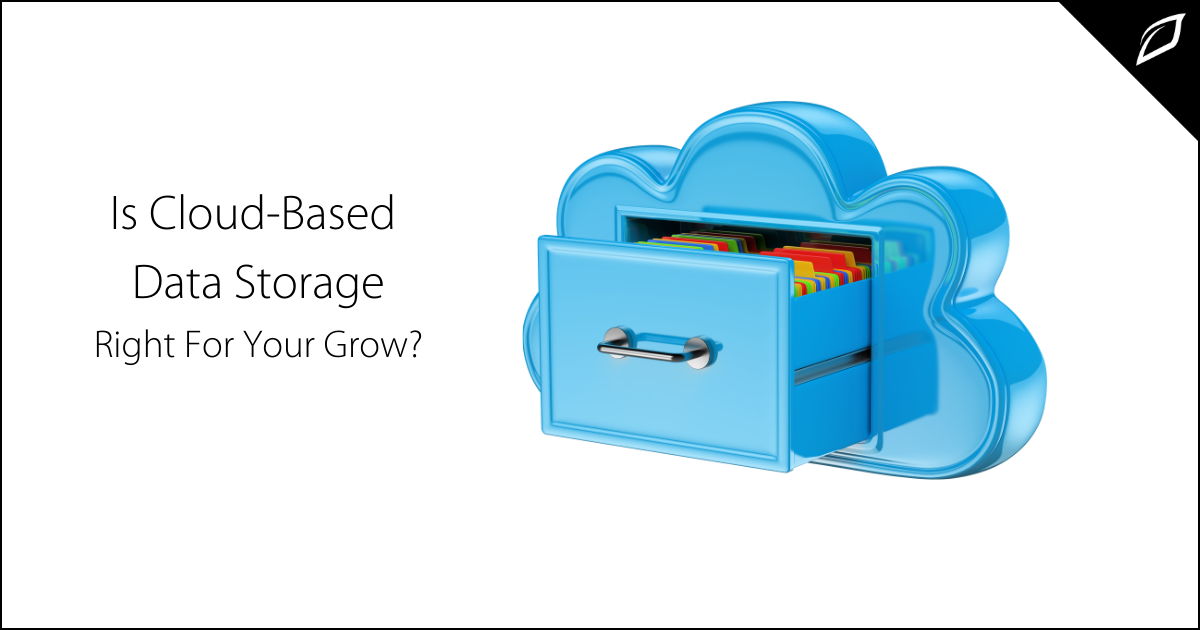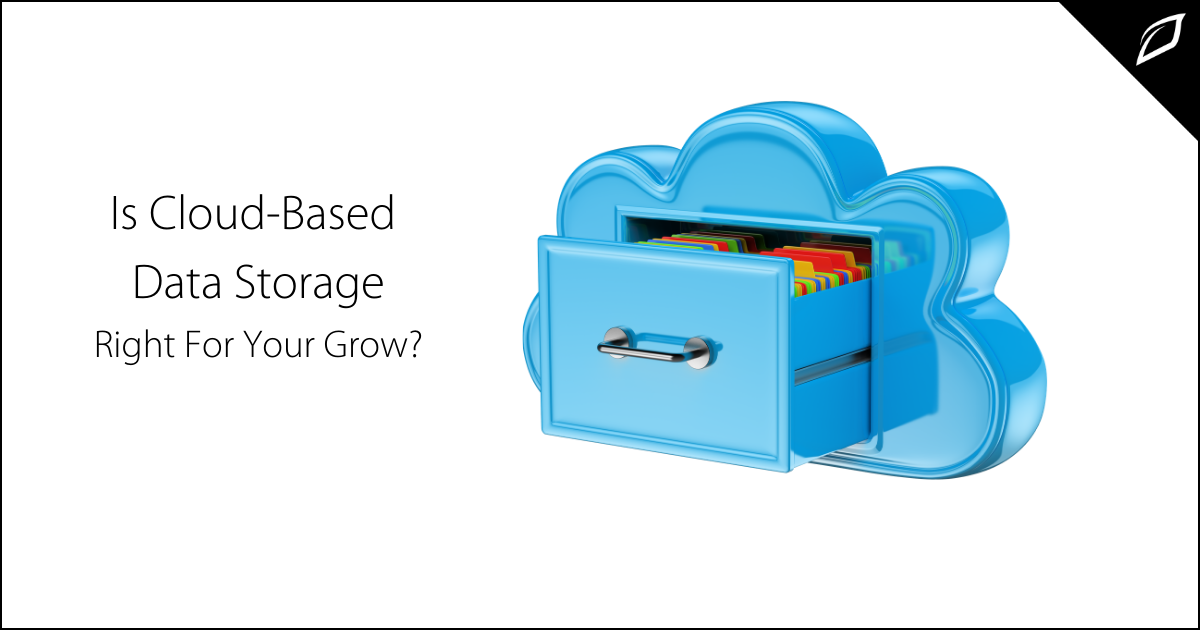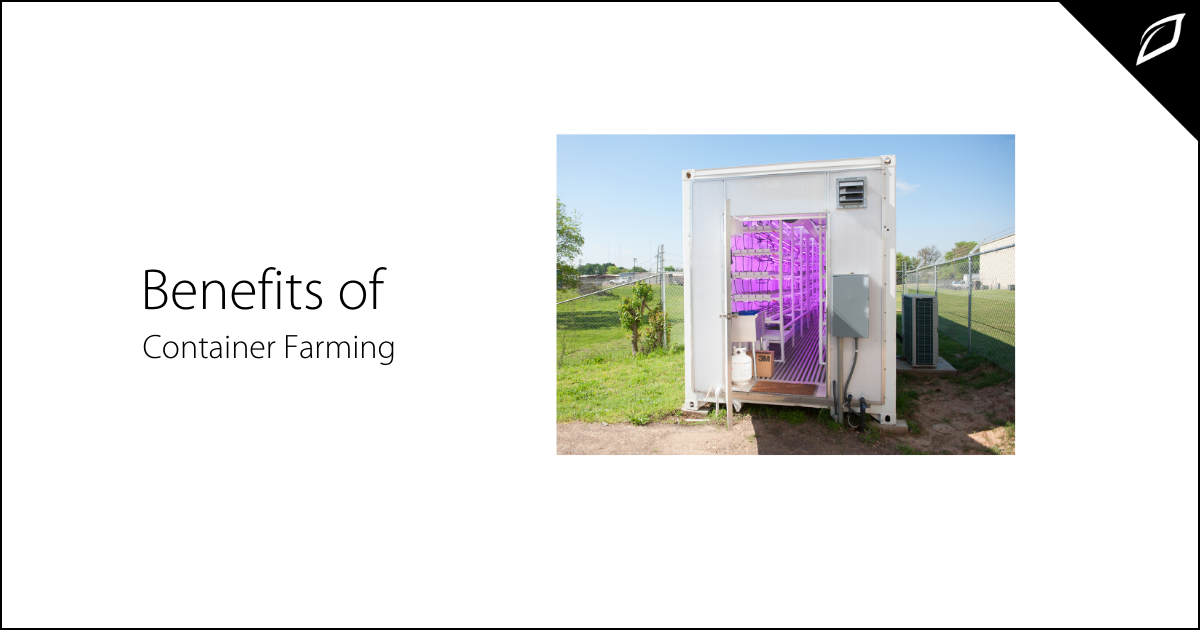Preventing Heat Stress In Indoor Commercial Grows
When temperatures rise, you're not the only one who feels the heat. Plants suffer when temperatures rise, especially if it's for an extended time. It...

Regardless of what business you're in, storing data can be costly and confusing. Cloud-based data storage solutions are increasingly in demand worldwide, especially for businesses utilizing automation that requires data collection and analysis, like agriculture. Let's dig into your cloud storage basics and options.
What is cloud-based data storage?
Cloud-based data storage is an outsourced solution for securing your data. Instead of saving data to your local hard drives, you store data on Internet-connected servers. Typically, data centers manage these servers to keep your data safe and secure. This means that any time you access files stored remotely, you are accessing a cloud.
What are the different options?
There are several types of cloud-based data solutions. Each of these offers a different combination of benefits and disadvantages.
Public Cloud: These provide convenience and security. This security is best suited for unstructured data, like files in folders. You won't get a vast amount of customized options from public cloud solutions, but it is affordable.
Private Cloud: Private cloud hosting services are on-premises solutions. Users assert absolute control over the system. Private cloud storage is more expensive because the owner manages and maintains the physical hardware.
Hybrid Cloud: Many businesses keep high-volume files on the public cloud and sensitive data on a private cloud. This approach allows for affordability and customization.
Is cloud storage safe?
Your data is relatively safe in the cloud—likely much more so than on your hard drive. Also, files are easy to access and manage. However, cloud services ultimately put your data in the hands of other people, so trusting your provider is crucial. All files stored on secure cloud servers benefit from an enhanced level of security.
There are many different ways to structure a cloud security framework, and the user must follow the security guidelines outlined by their provider when using the cloud.
For a security system to be secure, users must adhere to strict security protocols. Even the most unique security system cannot compensate for inattentive users.
Security breaches are seldom caused by inadequate cloud data protection. Estimates that up to 95% of cloud breaches occur due to human error. Improving user security will make cloud storage more secure.
Education helps companies successfully protect cloud data. Employee users often do not know how cloud computing works. But you can simplify cloud storage security to your employees by giving them primary education and training them effectively.
How much data can the cloud store, and is it cost-effective?
Cloud storage is virtually limitless, while local drive space is restricted by bandwidth and storage capacity.
Companies typically invest in cloud storage to save money as on-site storage and maintenance can be expensive. Improved connectivity is a cost-cutter, and cloud services can also save money in disaster recovery situations.
Professional cloud storage solutions come with state-of-the-art security. Users must follow the vendor's security guidelines to ensure the safety of data.
Conclusion
So overall, cloud-based data storage is the preferred solution to accessing and storing critical information. Using this approach allows a higher level of automation and provides crucial analytics and feedback, especially in the agriculture sector.


When temperatures rise, you're not the only one who feels the heat. Plants suffer when temperatures rise, especially if it's for an extended time. It...

Regardless of size, here is your must-have list of equipment before you start growing. Whether you're planning to grow fruits and vegetables for...

April 2016 marked the 60th anniversary of the first voyage of the Ideal X, the origin of modern container shipping. This expansion played a critical...